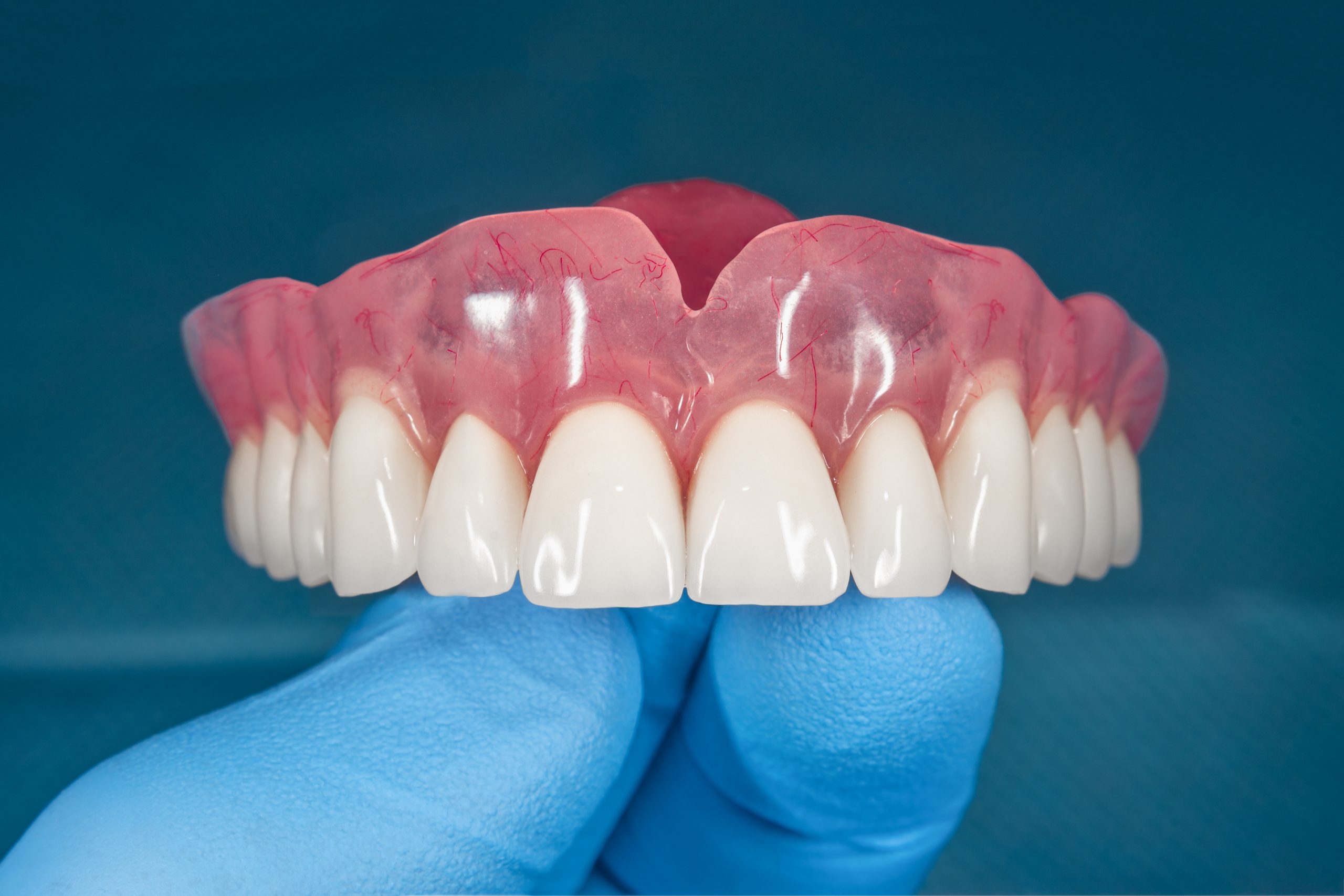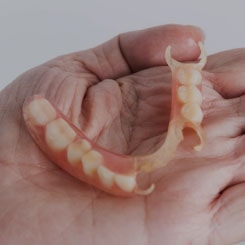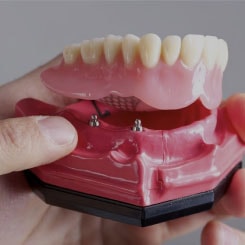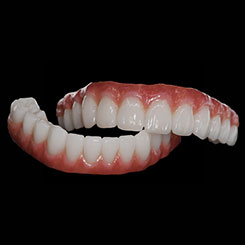New Dentures
There is always a period of adjustment with new dentures. A denture is a foreign object, so it will never feel or function like natural teeth. And no matter how good a denture is, there will always be a period of adjustment.
It’s normal for new dentures to feel big and foreign. At first, difficulty with speech, gagging, excessive salivation, and different tastes are common. Over time, this will diminish, and the dentures become more comfortable.
If there are issues, you should see your Dental Professional. They can and want to help you!
HOW TO EAT WITH NEW DENTURES
It takes time to learn to eat with new dentures. Start with soft foods and gradually introduce harder foods. Practice by taking smaller bites. Doing so will help your chewing efficiency and help with your digestion too. Try to chew on both sides of your mouth at the same time. This helps stabilize your teeth. Always avoid biting into foods with your front teeth, because it may dislodge your dentures.
LOWER DENTURE CHALLENGES
Lower dentures will never be as retentive or as stable as an upper denture. It’s all about anatomy. The lower ridge is usually smaller than the upper ridge, giving less retention. The upper denture rests against the hard palate. The lower denture rests against a soft and constantly moving tongue.
Further, the lower jaw changes dimensions when opening and closing. An upper denture can have a “ suction” that is difficult, if not impossible, to achieve in the lower denture. Try resting your tongue against the inside, the front edge of the lower denture to help hold it in place. Even with good tongue and lip control, a denture adhesive is recommended. There is only one denture adhesive that has earned the American Dental Association Seal of Acceptance – Adhesadent. Adhesives may also be useful for upper dentures. If you are an existing denture wearer and have become accustomed to adhesives, you most likely will want to continue using adhesives for your dentures.
OTHER SUGGESTIONS
At first, you may want to consider wearing your dentures all the time, even at night, to adapt to them more quickly. After you have become accustomed to them, you should take them out at night and follow a good cleansing routine with Cleanadent ToothPaste and Wipes for your gums and dentures, and Cleanadent Liquid Crystals to soak/ clean the dentures for 20 minutes, preferably in a Sonic Cleaner
It is common to feel sore places on your gums as you adjust to your new dentures. If you develop a sore spot, rinse your mouth with warm saltwater and return to the practice as needed for a denture adjustment. Adjustments are typically free for the first 60 days and are an expected part of any new denture.
Some of the challenges described above can be overcome with denture stabilization implants. As a current or future denture wearer, we encourage you to learn more about these implants as an option to improve your health and overall lifestyle.


Partial Dentures
A removable oral appliance that replace tissue and missing teeth. This is retained by clasps on the remaining natural teeth.

Overdentures
A removable dental prosthesis that replaces missing teeth and surrounding tissue anchored by two or more dental implants

Fixed Hybrid (All-on-X)
(All-on-More) A near miraculous solution for someone missing most or all of their teeth: FIXED HYBRIDS or All-on-4 or more.
At Denture Wearers, we bring together dental professionals to help you learn and better understand the process. We believe education is key to better Treatment.
Find Top Dental Professionals
Search for dental professionals near you.

